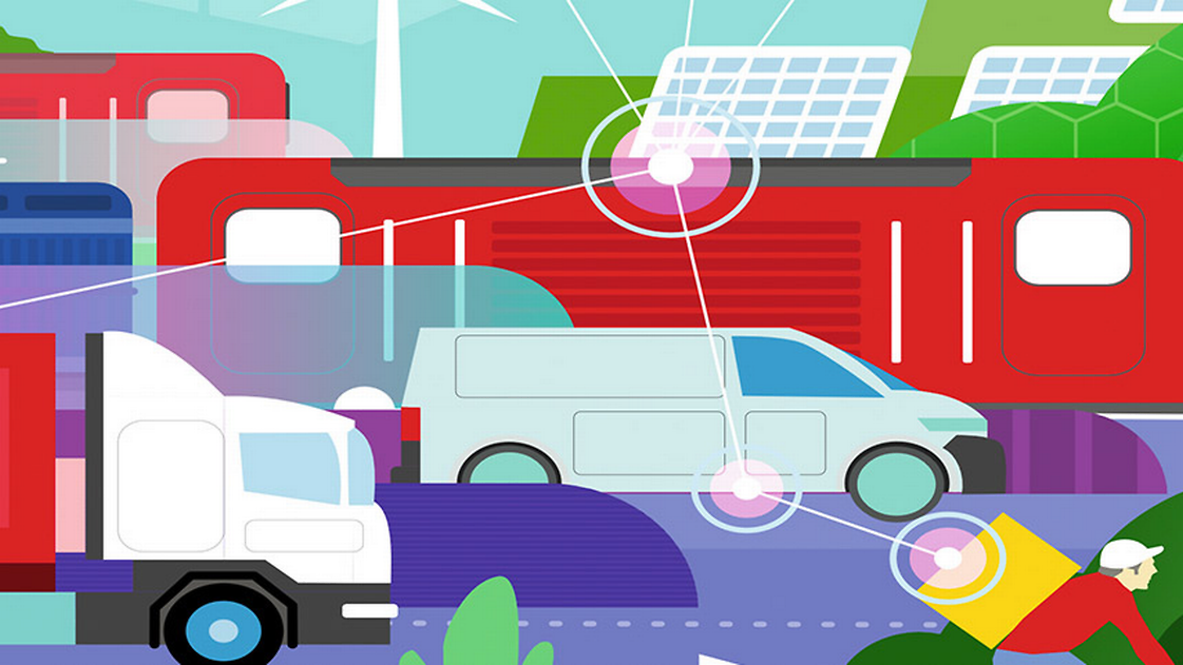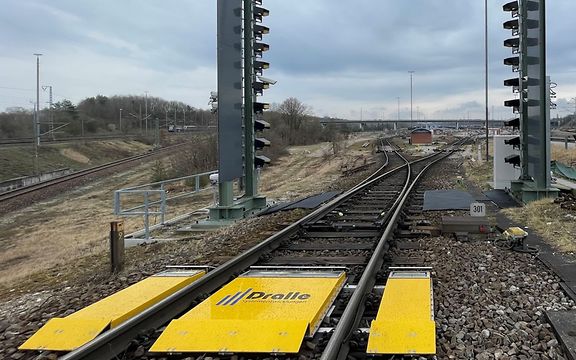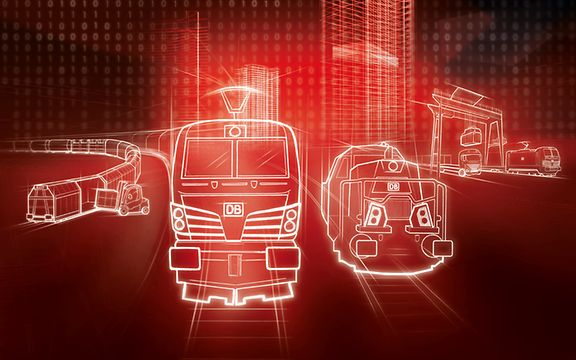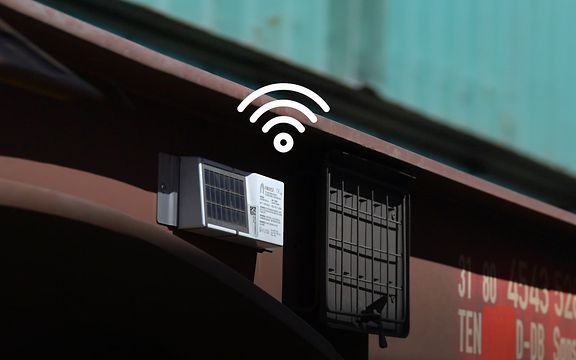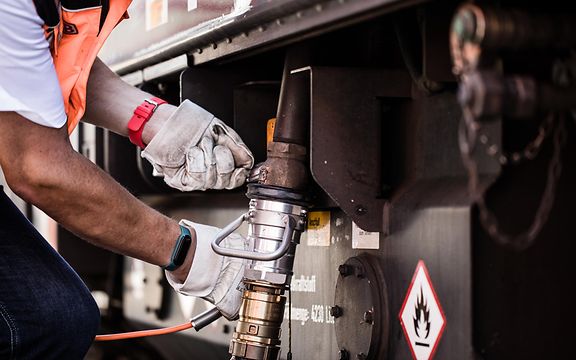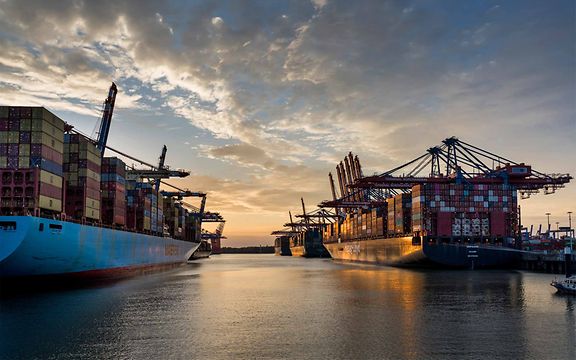Karl-Heinz Land is a keynote speaker, coach, out-of-the-box thinker and author of the books Earth 5.0 and Digital Darwinism. He is certain of one thing: "We'll all be very grateful to Greta Thunberg someday." Professor Peter Holm is vice-dean of the economics department at the Provadis School of International Management and Technology in Frankfurt, where he concentrates on logistics and supply chain management, digitalisation and sustainability. As someone who knows his subject matter inside out, he has a serious message for us: "We have to give up some of yesterday's habits." We spoke to the two experts about the future, logistics, the economy and the climate. Have a listen to what we learned.
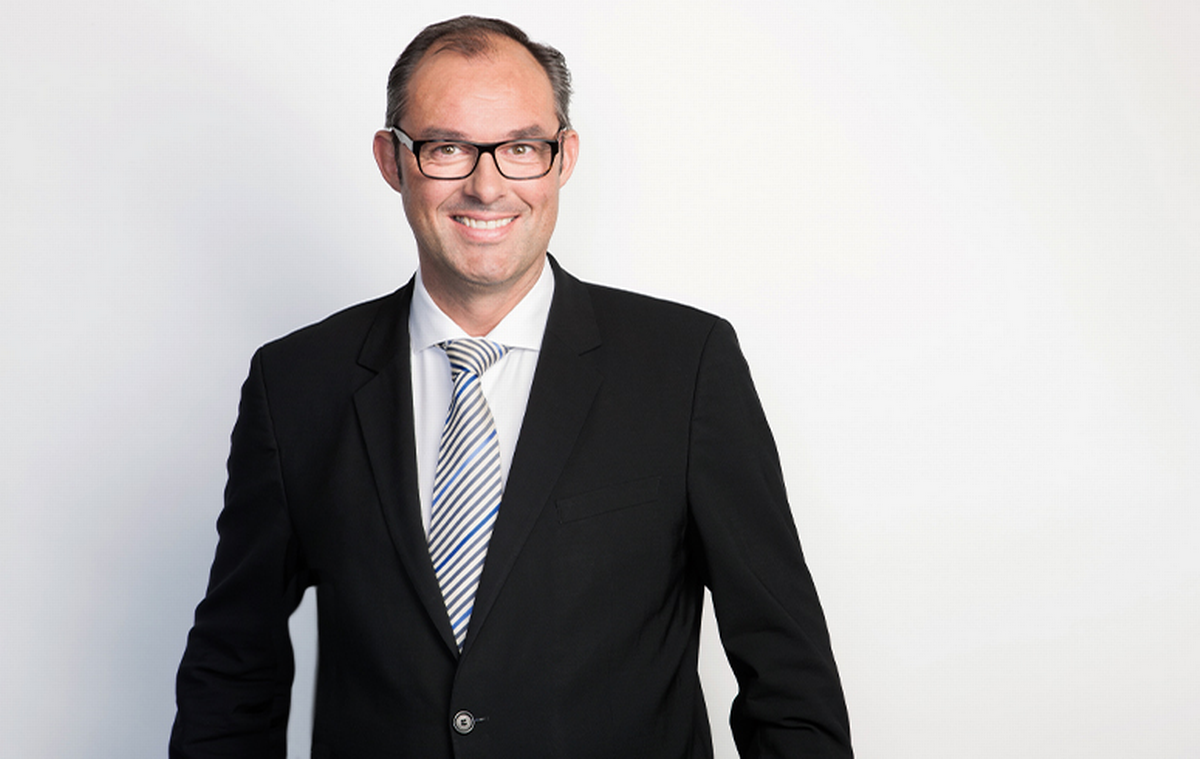
Peter Holm is vice-dean of the economics department at the Provadis School of International Management and Technology in Frankfurt. Copyright: Peter Holm
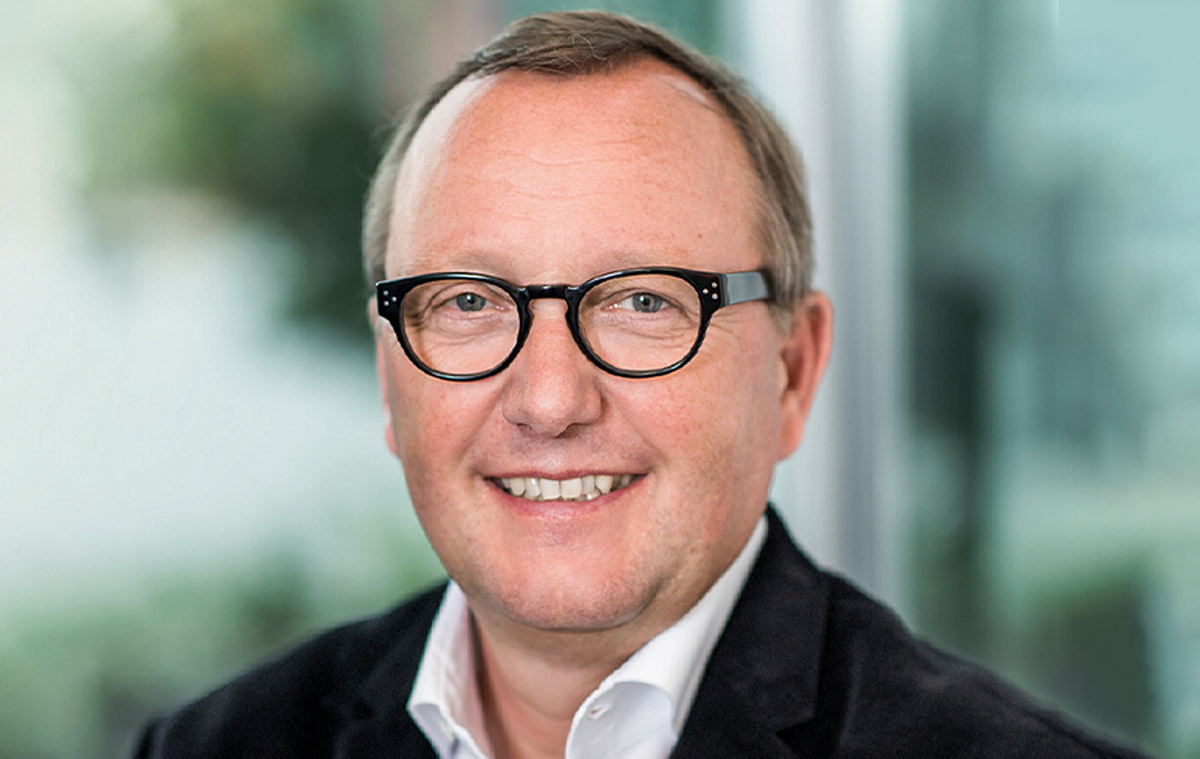
Karl-Heinz Land is a keynote speaker, coach, out-of-the-box thinker and author of the books Earth 5.0 and Digital Darwinism. Copyright: Karl-Heinz Land
The German government has set targets for transportation in its climate protection programme. The aim is to put a price on CO2 emissions and cut them by 40% while electrifying transport and shifting cargo to rail. Are these goals too ambitious or not ambitious enough, in your view?
Land Frankly, I find these requirements to be a bit of a disgrace. We aren't challenging industry enough, and if you ask me, they've set the price of CO2 so low you have to dig for it. I am an outspoken believer in the circular economy, and I think everything has its true price. Plastic bottles should never have cost less than glass ones. That's why things will probably take a very long time to happen.
Holm I think it's great that policymakers are setting goals, and I find them ambitious. However, I also think it's crucial to have even more interplay between various modes of transport to combat climate change. It will take more than a carbon price if we really want to significantly reduce CO2: we would need a digital infrastructure and for society as a whole to step in, for instance. We need to tackle this issue on a broader front.
It seems like it's trendy to be considered green in our society. But are people ready to pay the "true" price for things?
Holm There are several examples where this is the case. In Austria, for instance, there is a platform where consumers are willing to pay more for products transported regionally and sustainably. Thanks to Greta Thunberg, we have more awareness today. It remains to be seen how ready people are – and especially how willing they are to pay.
Land That's the chicken-and-egg problem. There's no question our consumers are spoiled. In other EU countries, people are more willing to spend more money on groceries. That will take some getting used to here. But you can explain it to people and show them that doing A will result in B. We'll all be very grateful to Greta someday, because that's exactly what she is doing. Now we need to take the next few steps and explain that this transition won't come free of charge.
Where is there economic potential still waiting to be tapped?Holm Right now, 75% of all goods are transported by road. Our existing infrastructure is approaching its limits in this regard. However, there are some initiatives to shift more freight to the rails and step up combined transport. Railway.tools is a platform which aims to improve interfaces between road and rail. The platform was launched by Bundesverband Güterverkehr Logistik und Entsorgung (BGL), a Germany-wide association for freight transport, logistics and waste management, and the Pro-Rail Alliance. Overall, the issue is highly complex, and the process will take many years. Uniform guidelines and standards would be helpful. To make rail freight transport more sustainable, we should focus more on the efficiency gains and innovative power of digitalisation: sensors, platforms and hubs. We're just getting started on that front and we need to keep going.
Land I agree completely, especially when we look at platforms and the sharing economy. The evidence shows that smart systems use 70-90% less resources. Artificial intelligence (AI) will provide enormous leverage in this arena. Digitalisation is an important step towards greater sustainability, and this is where the business sector needs to take action first.
Do companies need to take the initiative, or should they wait for demand for sustainable solutions to grow? Put another way, does the onus of sustainability fall on companies or consumers?
Land That's a definite maybe. It's no longer a matter of either/or – it's the "and" that's important. We have to do both – push and pull, create demand and apply pressure. Pressure is coming from climate change and congested roads, but also from digitalisation and automation. Those who fail to digitalise and network will not be in a position to automate. Those who don't automate will fall victim to digital Darwinism and put themselves at an economic disadvantage.Holm For companies, the ball is clearly in their court. Along with protecting the environment, companies need to improve the transparency of all the partners in their supply chains and deliver increasingly customised, customer-focused services. New (cyber-physical) systems and AI will help them do it.
How green is logistics today? Could it be any greener right now?Holm It could be much, much greener. The question is, what makes companies work toward sustainable supply chains? Pressure is increasingly coming from society and from innovative start-ups. But we need a high-level discussion of this topic. Freight transport will see double-digit growth. That's why companies need to think about future solutions today. It's also important for companies to waste no time looking for partners and specialists and to rethink their business models.
Land One thing is abundantly clear: in the business world, we have paid attention to social issues but not as much to the environment. We've been standing still for the last 30 years; there hasn't been enough pressure. But now we're at a tipping point, where the trend is moving towards an eco-social market economy. What we are seeing right now was triggered by Fridays for Future, and it's just the beginning. I believe awareness is rising at all levels. The economy will follow ecology. Every company will ensure that it becomes more sustainable, or risk being left behind.
What role do sustainable logistics play in meeting climate targets?Holm Logistics are hugely important here. If we consider that the majority of all goods are transported by road, then logistics becomes an obvious issue for climate protection. We also need to bear in mind that more and more people are being drawn to urban areas. How will goods be transported there in the future? Politicians will certainly discuss bans on lorries and other issues, but above all we have an opportunity to think innovatively about how we can better establish hubs and parcel stationsLand Taking a look at Germany's total CO2 emissions – some 800 million tonnes in 2019 – we know that transport and logistics account for roughly 165 million tonnes of them. That's why we should definitely make logistics more sustainable, but we shouldn't think that's the whole battle. Every individual needs to play their part.
In your opinion, what should logistics services look like going forward, and how much logistics can we even afford?
Land The most important thing is to establish smart systems and multi-modal platforms. We need systems that put out as little CO2 as possible as well as renewable energy sources. But we also need human intelligence to avoid unnecessary transports like returns in e-commerce. We have to completely rethink things and ensure that logistics for the last mile remain highly efficient, that we don't end up driving to a single destination five times.
Holm I'm with you there. Smart systems will support this shift. This model requires very highly trained specialists, but also means we need to decentralise production into regions. The pandemic has prompted some questions, like "Is it really necessary to fly everyday items halfway around the globe?" The issue of linking different modes of transport is vital for the future, as is openness to innovation. Green logistics will definitely pay off over the long haul.
What is the most important issue companies need to tackle and implement now?
Land As I see it, one of their biggest levers is the platform economy, i.e. introducing intelligence into their systems. Digitalisation is also important, along with preventing goods from being transported unnecessarily. We'll need technological progress to achieve that.
Holm Companies should first understand the importance of current and future challenges so they can develop the right kinds of sustainability and digitalisation strategies and think them all the way through. Sustainability shouldn't just be a buzzword: all its ramifications must be fully understood and implementation must proceed accordingly. Companies should be open to engaging in more partnerships. After all, sustainability is not a short-term campaign with a quick payoff. We have to give up some of yesterday's habits.
